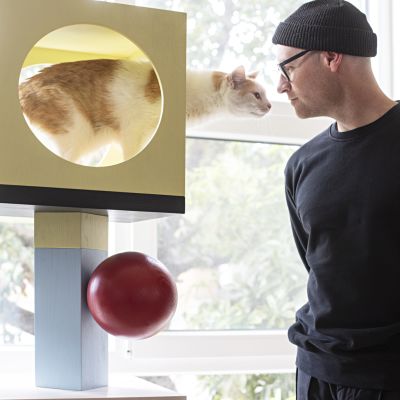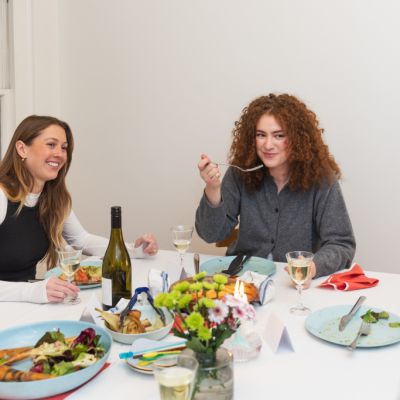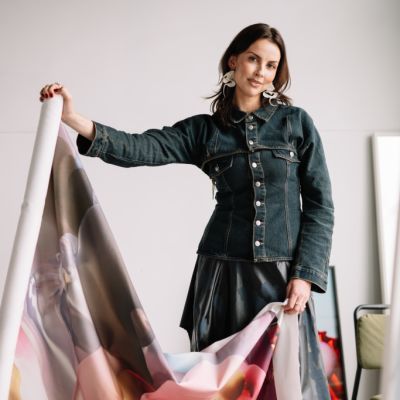How Melbourne-based homewares brand Fazeek gained its cult-like following
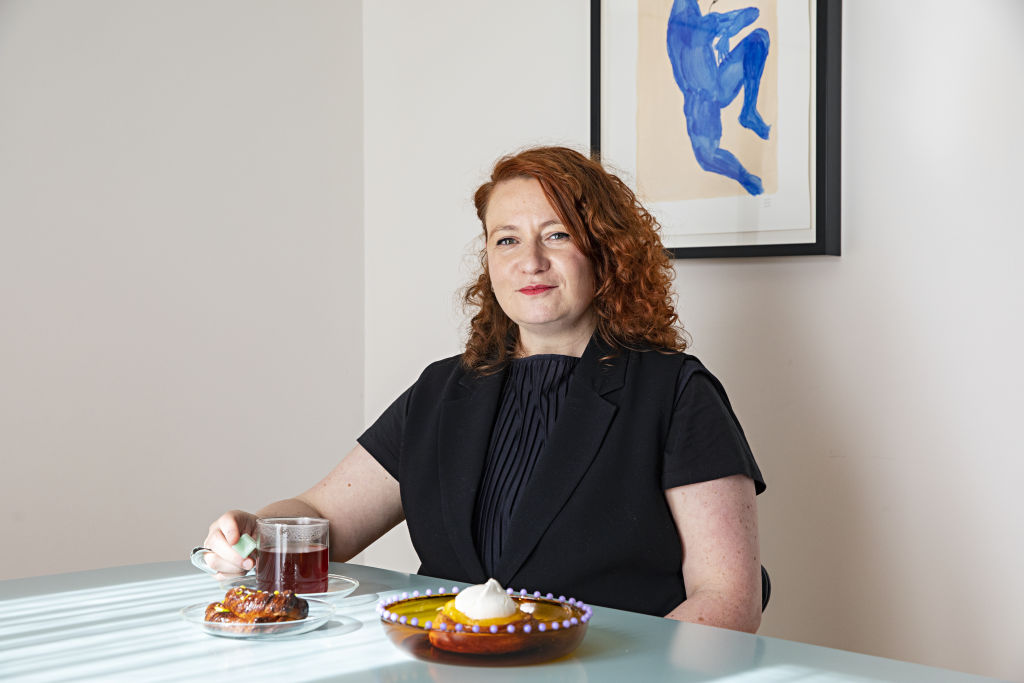
What does it take to survive the ups and downs and near misses of running an independent design business?
Jackie Fazekas, founder of Melbourne-based homewares brand Fazeek, will tell you it’s about trusting your gut and never taking “no” for an answer. Both have consistently proven true for Fazekas during tough times, along with a bit of reinvention, too.
When lockdown-weary consumers were newly interested in beautifying their living spaces with a dose of dopamine-inducing interiors, Fazeek pioneered its now signature curvy and colourful glassware.
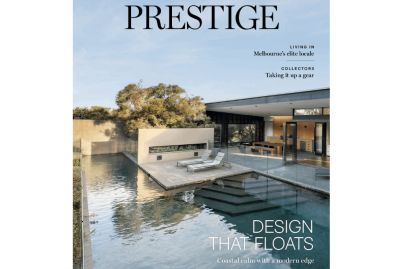

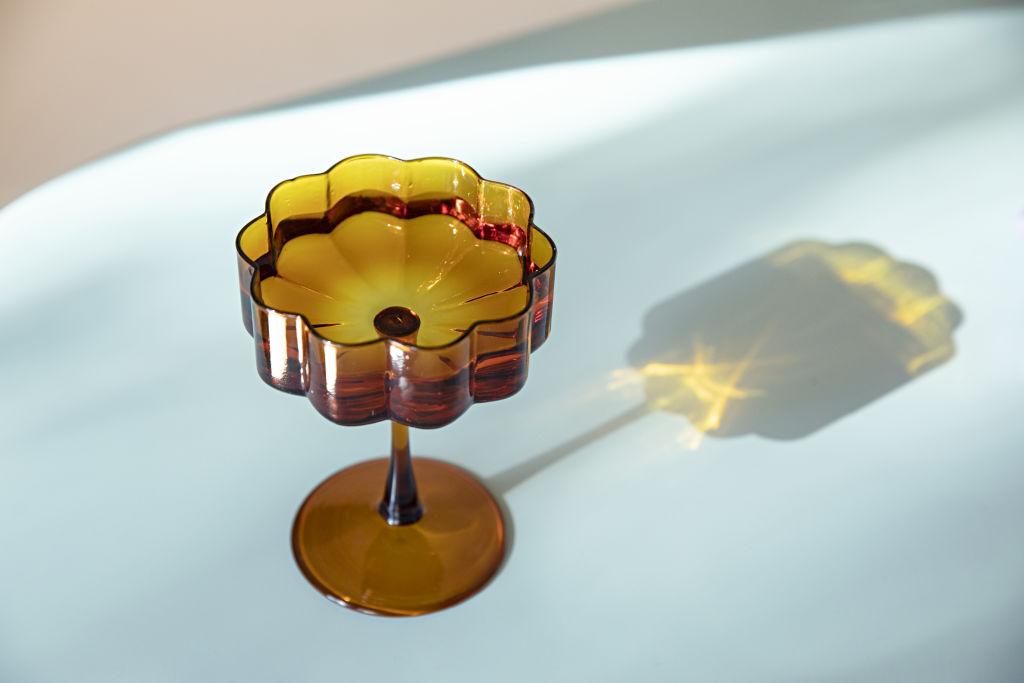
The instantly recognisable wavy glasses and coupes – complete with flower-shaped rims – are often spotted across Instagram and at stylish dinner parties, growing a cult-like following.
But the Fazeek story began almost 10 years ago when Fazekas made her first product at her kitchen table: a small range of hand-printed table linens. She was working jobs in both fashion and hospitality back then, but had soured on the throwaway, seasonal nature of the former.
The idea of “designing something that lasted a lifetime” appealed, and so she created linens, napkins and custom aprons for restaurants in her spare hours – always with the goal of eventually running her own business.
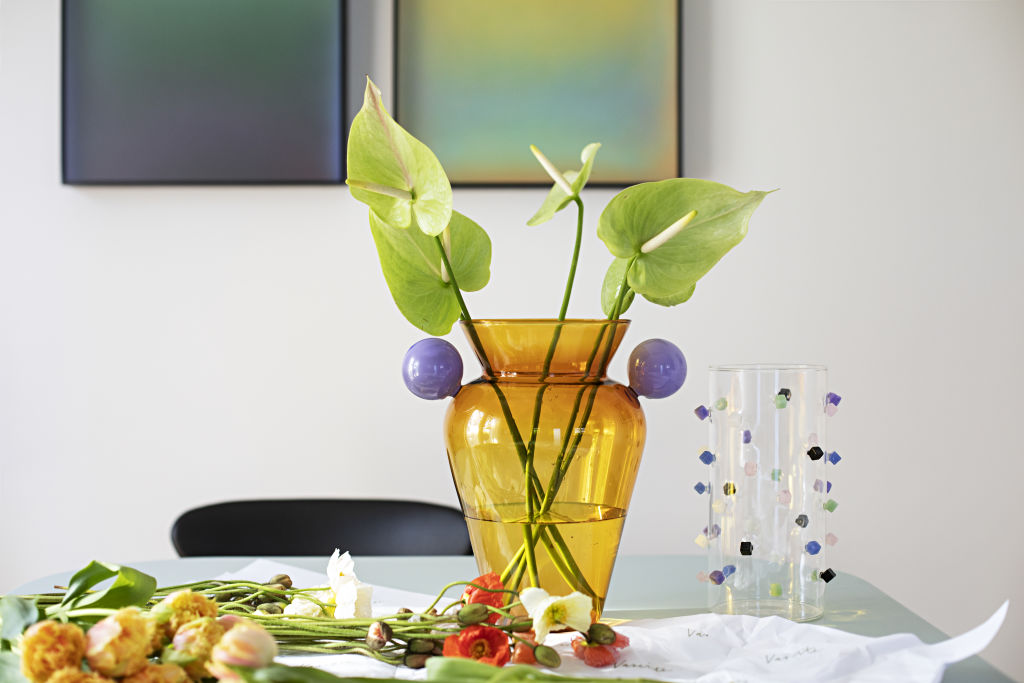
“It was a constant ‘Let’s see what works and resonates with people’,” Fazekas tells Broadsheet of the early days.
Hand-painted, patterned belly baskets came next – a successful move that landed her stockists and press. But things took a disheartening turn when Fazekas discovered her designs had been ripped off by other companies (including her own suppliers), a reality countless small designers encounter with few resources to combat.
All she could do was trust her creativity and move onto the next thing: soap.
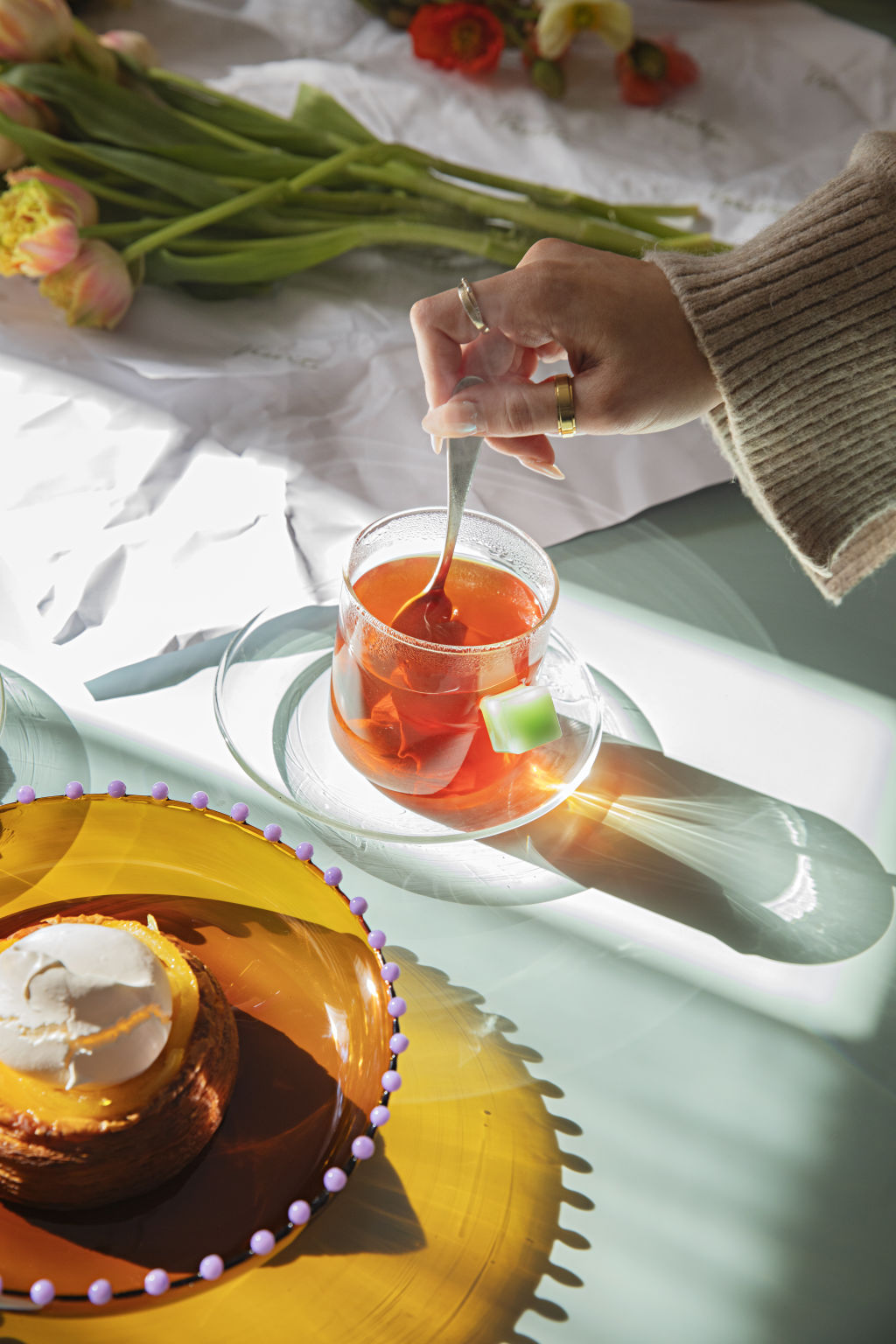
The idea marked a turning point for Fazeek. In 2017, the brand’s marbled and terrazzo soap bars – which Fazekas made in her parents’ kitchen and photographed in sleek, graphic set-ups – quickly garnered attention. Within a week of launching, Fazekas had wholesale orders for hundreds of units.
By 2019 she’d collaborated with Gorman – high praise for any small designer. “To tell you the truth, before the soaps, it was actually the end of Fazeek,” the creative says.
“I was about to close down because it was just so hard. I’d design something then get ripped off, and I didn’t have the funds to put money into marketing. The soaps were the last hope – and that’s what went off.”
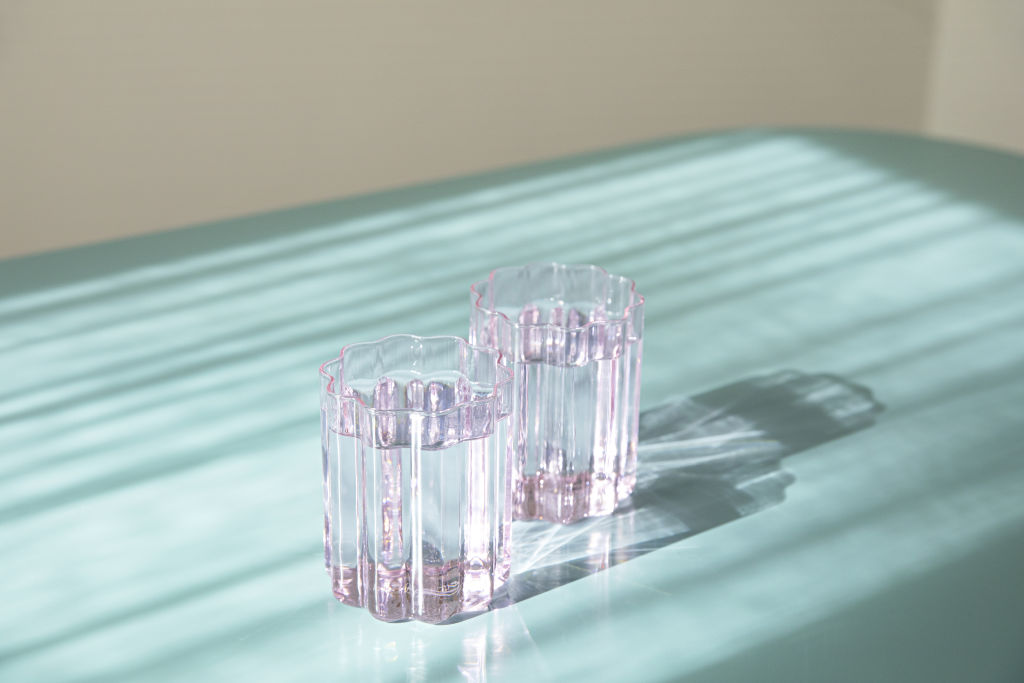
After gaining much-needed confidence, Fazekas reinvested new funds to develop candles and incense while continuing to sell at markets and stock at boutiques. Yet while the brand was doing relatively well, behind the scenes, Fazekas was running herself into the ground, barely drawing a salary.
“When Covid hit, I took a step back to reassess. I was making everything by myself and [was] exhausted.” The next iteration of Fazeek, she decided, would require outsourcing.
She tested the waters by producing a glass oil burner in 2020 (having already designed a broader glassware range in the pipeline) and was pleasantly surprised by the enthusiastic response from customers. “I love glassware because it’s timeless and beautiful. I was like, ‘I believe in it, so I’m gonna give it a go’,” she says. Her instinct for change proved right once again.
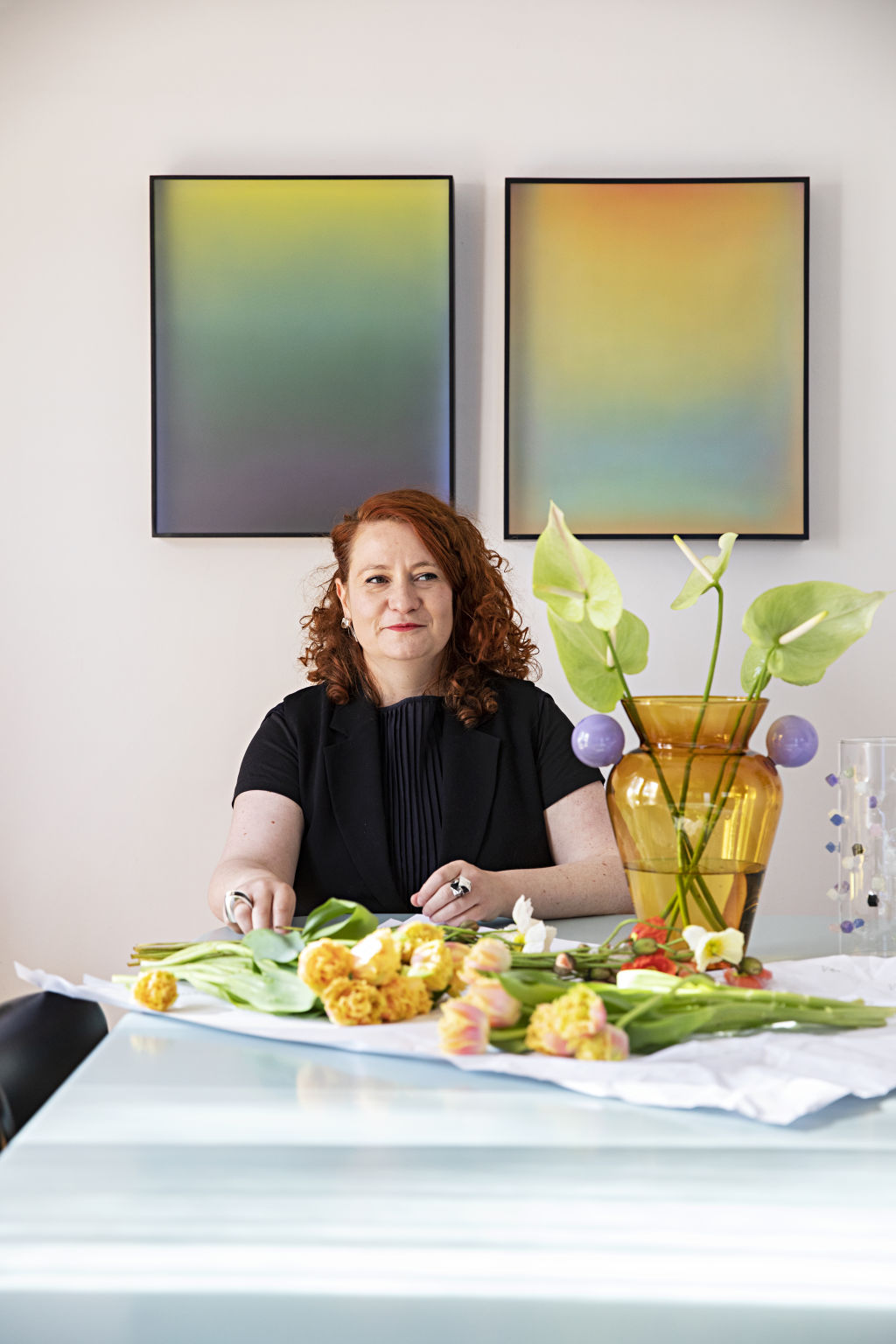
And so Fazeek’s much-loved colourful glass cups, vases and carafes debuted in 2021 to an eager audience. The Wave coupe was an instant hit, selling out within a matter of minutes. A nod to vintage design, they remain a top seller today.
“I always loved the Marie Antoinette coupe and just wanted to reimagine it as my own. The reaction wasn’t what I expected – they’ve really built a cult following. As a designer who’s worked my bum off for many years, it feels very special to have that.”
Fazekas has kept scented products in-house – candles and the like are still made at Fazeek’s combined shopfront and head office in Fitzroy North – while glassware is manufactured by a team in China.
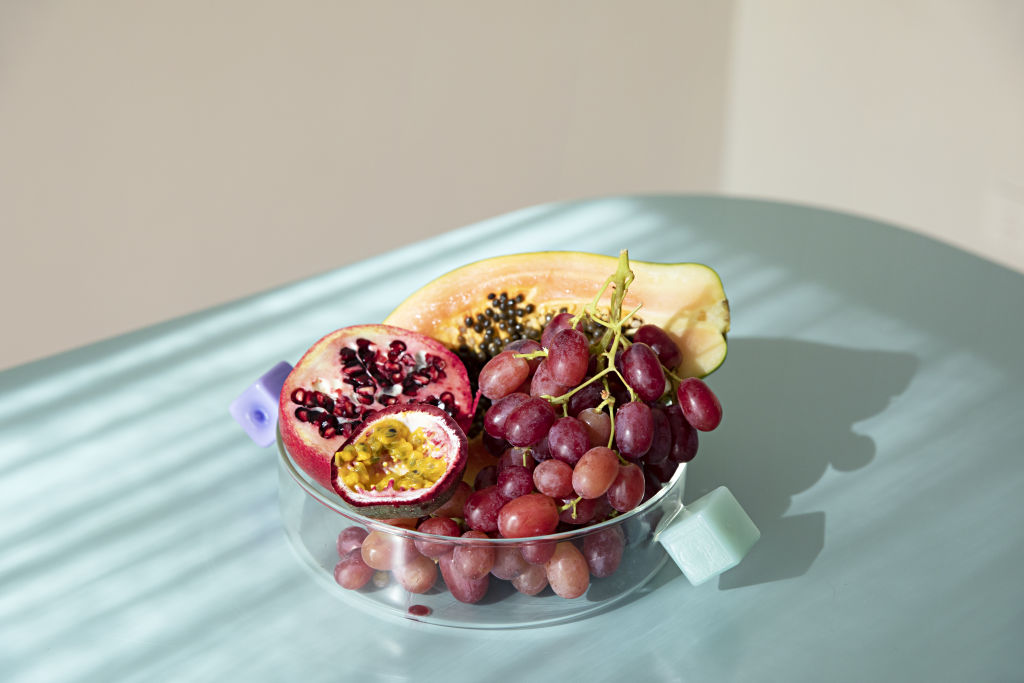
Each glass piece is made individually using hand-blowing techniques involving stretching and twisting glass rods at 1000 degrees Celsius that are then blown into shape with the help of a mould. Fazekas enjoys the quirks that can result from the process.
“It has character,” she says. “To me, that is what sets hand-blown glassware apart.”
Within a few years of launching glassware, the brand picked up major stockists including David Jones, US-based stores Ssense and Revolve, and Middle Eastern luxury retailer Ounass.
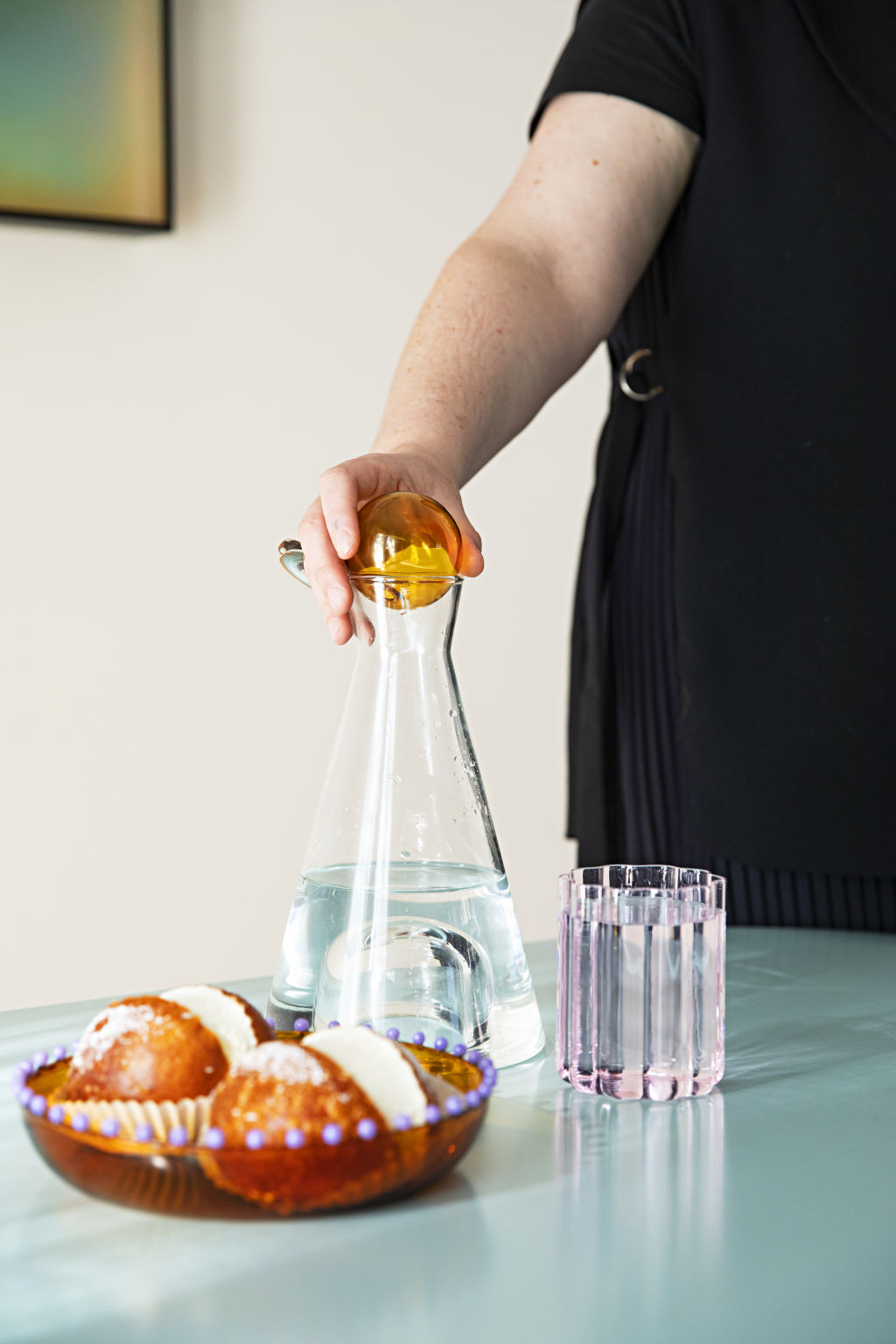
“I definitely feel like we are a much more established brand now,” Fazekas says. And while the growth is certainly validating, the designer notes, “you just never know where it’s going to go from one day to the next”.
Even though she’s ticked off long-held goals – running her own business, supporting a small team, onboarding dream stockists – Fazekas remains measured about the path forward.
“We’re very lucky,” she reflects. “Obviously I’d love to get bigger, but it’s very much about doing it in a sustainable way. Success now is work-life balance and being able to do what I love with an amazing team around me.”
This article first appeared in Domain Review, in partnership with Broadsheet.
We recommend
We thought you might like
States
Capital Cities
Capital Cities - Rentals
Popular Areas
Allhomes
More
